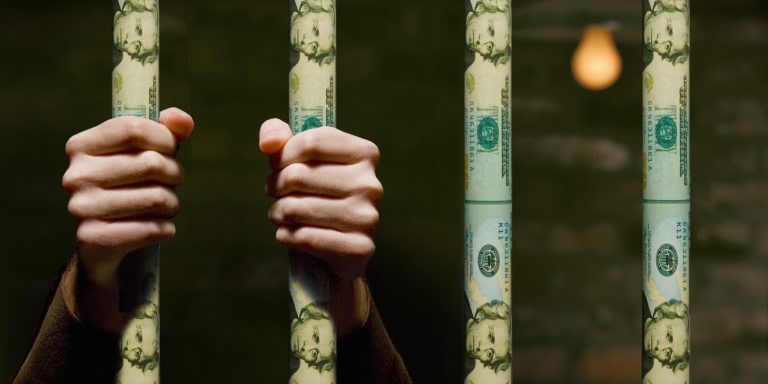The report finds: Banning bail bonds would reduce short-term stays at Rikers Island and push forward bail reform in NYC and across the country.

In a new report released on Wednesday, Comptroller Stringer calls on the city to address one of the most costly and punitive aspects of the justice system: commercial bail bonds. According to the report, every year, 50,000 people are detained before their trials, and 33,000 of them — or two-thirds — are held in city corrections facilities because they cannot make bail. The report finds: banning bail bonds would reduce short-term stays at Rikers Island and push forward bail reform in NYC and across the country.
"Since it was politically popular to be 'tough on crime,' America built more and more prisons, and implemented policies that put more and more people in them," says Stringer in the report. "But: Mass incarceration isn't just morally wrong. It hasn't worked — and it has left millions of Americans behind. As a nation, we need to turn the page on the criminal justice policies of the past. As a city, we need to lead in the fight."
The new report documents that each year, tens of thousands of New Yorkers spend time in city jails simply because they cannot afford to pay bail. In 2017, there were about 33,000 admissions to New York City jails of people who were unable to pay bail at their first court hearing. And communities of color are disproportionally affected: More than 80 percent of those jailed because they can't pay bail are black or Hispanic.
The comptrollers' office estimates that the cost to the city to detain people pretrial who are unable to pay bail is about $100 million annually. Additionally, people incarcerated before their trial face other costs that include lost jobs, property and time with their families, resulting in long-term reductions in their families' stability and economic mobility. The report estimates the average wages of people in custody lost runs about $28 million annually.
Yet, even as crime and arrests have fallen, the commercial bail bond industry plays a growing and costly role in the city's bail system. Defendants who cannot pay bail on their own turn to commercial bail bonds to cover bail for them in exchange for a fee. The comptroller's office estimates that last year the private bail bond industry extracted up to $27 million in nonrefundable fees from people arrested in New York City. Unlike bail payments made directly to the courts, premiums paid to private bail bond companies are nonrefundable.
To make matters worse for the defendants: Evidence suggests that some companies collect fees above the legally permitted amount. In addition, evidence suggests that private bail bond companies may fail to file bonds with the court in a timely fashion, leading to additional and unnecessary delays in a defendant's release, even after all the required fees have been paid.
"It's an industry that profits off of suffering, and it's making money from those who need it most," states the comptroller.
Thus, Stringer calls for the elimination of commercial bail bonds to build a justice system that relies less on money and more on fairer, faster and less costly forms of release. To achieve that, he urges judges to use alternatives to commercial bail bonds, including less-costly forms of bail such as unsecured/ partially secured bonds which allow people to execute bonds by signing affidavits and posting refundable fees and/or collateral with the courts.
"Without the opportunity to select private bail bonds, judges would be encouraged to set bail in more affordable forms, reducing the number of people who enter jail because their bail is set at an unaffordable level," states Stringer. "Second, given that private bail bond providers have been found to delay bail posting, ending this practice would help to reduce the length of jail stays resulting in fewer people incarcerated at any given time."



